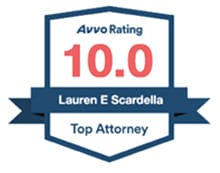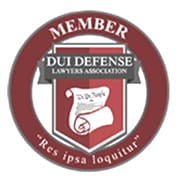New Jersey Driving Under the Influence of Drugs Attorney
DUID Defense Lawyers in Hamilton Stand Up for the Rights and Interest of Charged Drivers in Mercer County, Monmouth County, Middlesex County, and Throughout NJ
Have you been arrested and charged with driving under the influence of drugs in New Jersey? Facing criminal prosecution for DUID can be a scary experience, especially if this is your first encounter with the criminal justice system. But you don’t have to go through the process alone. Turn to a New Jersey driving under the influence of drugs attorney from The Scardella Law Firm LLC for the legal advice and advocacy you need to defend your rights and interests. We pride ourselves on our reputation for developing tailored case strategies to secure the best possible results for you and your future. At our firm, you can expect to receive personal attention and support. We genuinely care about our clients and take the time to understand their stories, needs, and goals.
After you’ve been charged with DUID, you need legal representation as soon as possible to protect your rights and options. Contact The Scardella Law Firm LLC for a free initial case review with our DUID defense lawyers in Hamilton, NJ, to learn more about your charges and what to expect in the criminal justice system.
New Jersey’s DUID Laws
New Jersey’s DWI statute prohibits both driving under the influence of alcohol as well as narcotic, hallucinogenic, or habit-producing drugs. While a driver is per se driving under the influence of alcohol when they have a blood alcohol content of 0.08 percent or more, a driver may be charged with driving under the influence of drugs when they have any amount of intoxicated drugs in their system, including THC or other active components of marijuana or cannabis products. Police can also arrest drivers for DUID based on the intoxicating/impairing effects of legal over-the-counter medication or prescription drugs.
Although New Jersey’s implied consent law requires drivers to submit to a breathalyzer test after being arrested for driving under the influence of alcohol, implied consent does not extend to testing for drugs. You can voluntarily agree to provide a urine or blood sample for drug testing, but you will face no penalties solely for refusing to provide a sample. Instead, New Jersey law enforcement agencies use drug recognition experts to determine if a driver is under the influence of drugs.
Penalties for a DUID Conviction
The penalties for a conviction for driving under the influence of drugs will depend on whether a defendant is facing a first-time, second-time, or third or subsequent conviction. Penalties for a first offense include:
- A fine of $300 to $500
- A requirement to attend 12 to 48 hours of instruction at an Intoxicated Driver Resource Center
- Potential for up to 30 days in jail
- $1,000 insurance surcharge for three years
Penalties for a second conviction within ten years include:
- A fine of $500 to $1,000
- Jail time of 48 hours to 90 days
- One-to-two-year driver’s license suspension
- 30 days of community service
- $1,000 insurance surcharge for three years
Penalties for a third or subsequent offense within ten years include:
- A fine of $1,000
- A jail term of 180 days, 90 days of which may be served in a drug rehabilitation facility
- Eight-year driver’s license suspension
- 30 days of community service
- $1,500 insurance surcharge for three years
DUID Defense Lawyers in Hamilton, NJ, Can Help You Explore Possible Defenses in Your Case
At The Scardella Law Firm LLC, a New Jersey driving under the influence of drugs attorney will thoroughly investigate your case to identify possible defenses to your DUID charges. Common defense strategies for DUID cases include;
- Challenging the legality of the traffic stop by proving that police lacked reasonable suspicion that you had committed or were committing a crime or traffic violation
- Challenging law enforcement’s conduct during the stop, including potentially unlawfully extending the duration of the stop or incorrectly advising you of your rights
- Challenging the scientific reliability of Drug Recognition Expert testimony
Our attorneys can also help you explore alternative dispositions to your DUID charges, such as seeking admission to New Jersey’s recovery courts, which may grant expungement of your arrest and prosecution record upon completing the program.
Contact Us for a Free Case Evaluation to Discuss Your Legal Options with Our DUID Defense Lawyers in Hamilton, NJ
If you’ve been arrested and charged with driving under the influence of drugs, get the experienced legal help you need to defend your reputation, freedom, and future. Contact The Scardella Law Firm LLC today for a free, confidential consultation to speak with a New Jersey driving under the influence of drugs attorney about how we can help you prepare an effective defense strategy to pursue a favorable outcome in your case.
Frequently Asked Questions About Driving Under the Influence of Drugs in New Jersey
Under New Jersey law, a driver may be charged with and convicted of driving under the influence of drugs if the state can prove beyond a reasonable doubt that a driver was “operating” the vehicle. State law defines the “operation” of a vehicle more broadly than the specific act of driving down the road. Instead, the “operation” of a motor vehicle can include having control of and intent to drive the vehicle. Evidence that prosecutors may use to prove control and intent includes a running engine or having keys in the ignition. The state can also obtain a conviction by presenting evidence supporting an inference that you recently drove the vehicle, such as a warm engine.
A conviction for DUID is not limited to illegal drugs. A driver may also face DUID charges when taking legally-prescribed medication that impairs their ability to operate a motor vehicle safely. Many prescription drugs have warnings instructing patients to refrain from driving while taking the medication. In addition, consuming alcohol while taking certain kinds of medication may cause severe impairment from the combination of alcohol and drugs, even if a person has a BAC of less than 0.08.






